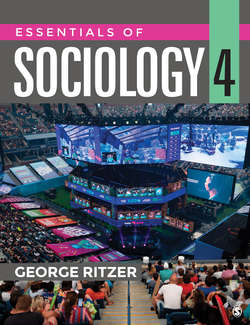Читать книгу Essentials of Sociology - George Ritzer - Страница 174
На сайте Литреса книга снята с продажи.
Organizations
ОглавлениеThe social world is awash in organizations, collectives purposely constructed to achieve particular ends. Examples include your college or university, which has the objective of educating you as well as your fellow students; corporations, such as Apple, Google, Amazon, and Walmart, whose objective is to earn profits; the International Monetary Fund (IMF), which seeks to stabilize currency exchanges throughout the world; and Greenpeace, which works to protect and conserve the global environment.
A particularly long and deep body of work in sociology deals with organizations (Adler et al. 2016; Godwyn and Gittell 2011), much of it traceable to the thinking of Max Weber on a particular kind of organization, the bureaucracy. As you may recall, a bureaucracy is a highly rational organization, especially one that is very efficient. However, both Weber’s own thinking and later sociological research (see the following section) make it clear that bureaucracies are not always so rational and are even as irrational as you undoubtedly sometimes find them to be. Nevertheless, the bureaucracy is a key element of Weber’s theory of the rationalization of the Western world. In fact, along with capitalism, the bureaucracy best exemplifies what Weber meant by rationalization. For decades, the concept of bureaucracy dominated sociological thinking about organizations, and it led to many important insights about the social world.
